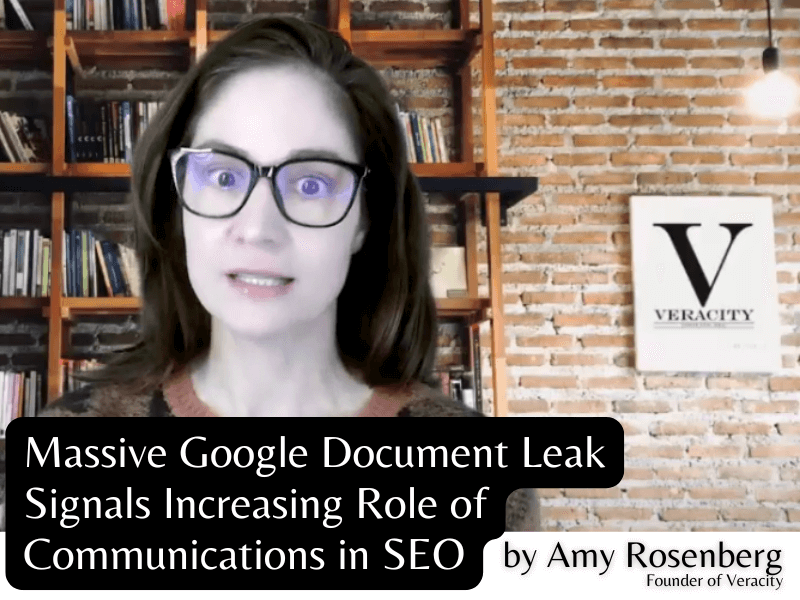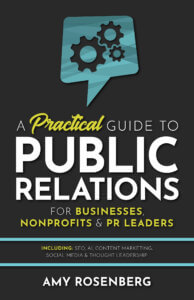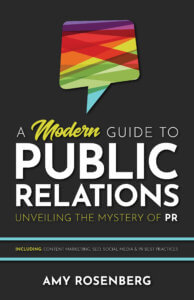In May, the digital marketing world was rocked by the leak of a colossal Google document detailing over 14,000 ways content is evaluated. This 2,500-page technical manuscript, initially shared with Rand Fishkin, founder of MOZ and CEO of SparkToro, and further analyzed with Mike King from Ipullrank, has provided unprecedented insight into Google’s ranking algorithms. Historically, Google has been secretive about these algorithms, often leading to confusion and misinformation about what truly impacts search rankings.
Though I’m not an SEO expert but rather a PR professional, my session at the PRSA Northwest Communicators Conference aimed to distill these insights into actionable advice for communicators. Here’s a summary of the key points and how they can shape our approach to digital PR and SEO:
1. The Critical Importance of Links
The leaked document reaffirms that links from third-party websites remain a fundamental element of SEO. Despite previous claims from Google suggesting that online mentions could be as valuable as links, the reality is that securing backlinks is still crucial.
For digital PR, this means continuing to pursue links from reputable news outlets and relevant websites. Even if a link isn’t always feasible, aim to garner them when placing a story. And don’t overlook links from non-media websites, like educational institutions or charitable organizations, which can also provide significant SEO benefits.
2. Relevance is Key
The document confirms that relevance is vital for SEO success. It’s not just about collecting links, but ensuring they come from websites directly related to what your brand does, or what people might search for in relation to your brand. Instead of targeting niche or loosely related industries, focus on securing placements on sites that are directly relevant to your brand’s core activities. The quality and contextual relevance of these links are far more impactful.
3. Understanding EEAT (Experience, Expertise, Authoritativeness, Trust)
EEAT — Experience, Expertise, Authoritativeness, and Trust — has been a significant topic in SEO discussions. However, the recent document leak suggests that EEAT might not be as pivotal as previously thought. While EEAT has been heavily emphasized in SEO circles, its role might be less central than anticipated.
The document indicates that while EEAT is not a dominant ranking factor for content itself, it still applies to the credibility of the author. Here’s what EEAT entails:
- Experience: Authors should demonstrate direct experience with the topics they discuss.
- Expertise: Authors must show a deep knowledge of the subject matter.
- Authoritativeness: The site should be recognized as a go-to source on the topic.
- Trust: Trustworthiness remains a key aspect, influencing how content and authors are evaluated.
Although EEAT’s direct impact on ranking content might be limited, focusing on credible authorship and maintaining consistency in expert representation can still contribute positively to your SEO strategy.
4. Brand Authority: The Ultimate SEO Factor
One of the most critical takeaways from the document is the dominant role of brand authority. For many small and medium businesses, and newer creators or publishers, traditional SEO efforts might show limited returns until they establish a strong reputation and credibility.
As Rand Fishkin aptly noted, “SEO is a big brand, popular domain’s game.” Google tends to favor well-known and authoritative sites, making it challenging for smaller or newer brands to gain traction through SEO alone.
For communicators, this highlights the importance of focusing on building a robust brand presence beyond direct SEO efforts. Strengthening your brand’s visibility and reputation — both online and offline — can create a ripple effect that enhances SEO over time. While improving authorship and securing relevant links are important, the broader focus should be on elevating your brand’s overall presence and authority.
Conclusion
The Google document leak has provided valuable insights into SEO and its intersection with communications. Understanding the roles of links, relevance, EEAT, and brand authority can help PR professionals align their strategies more effectively with SEO objectives.
Thanks to Rand Fishkin and Mike King for their invaluable work in analyzing these findings, and to the attendees of my session at NW CommCon for engaging in this crucial discussion. By integrating these insights, communicators can enhance their PR strategies and contribute to more effective SEO outcomes.









